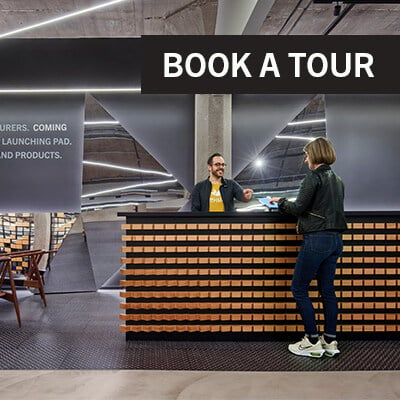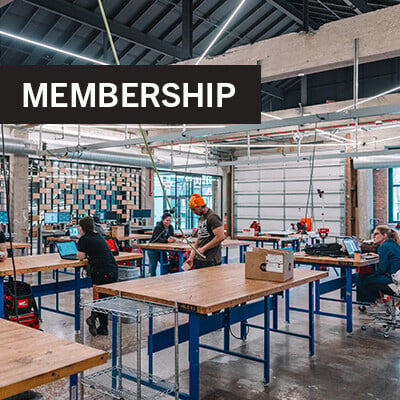Building a hardtech business is difficult, especially without the right guidance. Here is a list of helpful tips & tricks that any hardtech startup can benefit from, regardless of what stage the business may be in.
Talk to your customers as if you were in their shoes! Don’t be the saleswoman nor the engineer when talking to your customer. Perfect your art of open questioning and listen – the less you talk the better. The more insights you gather, the better.
Don’t rely on friends or family to tell you if your product idea or concept is good. They will tell you it’s great! You need a deep interaction with customers to understand their pain points, problems and deep needs and to validate your product or service concept.
Focus on solving real problems, real pain points. Don’t assume you know what the problem is or what your so-called customers want. Go out of the building and find, talk and observe those whom you think have that pain point.
Focus on one thing. Customer interviews and observations will likely uncover multiple problems and pain points. Early success is based on focus. Focus on that one pain point, deep need. Don’t tackle too many needs at once – keep them for later.
Be frugal on your validation journey towards a solution. Go step by step, checking your hypothesis and your assumptions, starting with the most critical one. Then validate the next assumption, and so on.
Experiment, test and learn from it. You want to limit the number of variables when you are testing. Don’t go full-in on a prototype immediately: it will cost you lots of money, time and reputation if you don’t get it right.
Don’t underestimate building hardtech products: it is capital-intensive. Find a space where you can use prototyping facilities, where you get hardware manufacturing advice from seasoned experts. Save your money for other expenses. You’ll need every penny.
Hardware product development takes time – just accept it. Don’t assume you can copy-paste the fast development rhythm of software innovations. So it’s even more important to carefully time the validation path of your solution.
Don’t try to build everything yourself, don’t think what you do yourself is better. Being part of a hardtech community will open a network of entrepreneurs, manufacturers, contractors and alike – accept help from your peers.
Find a place where you are amongst fellow hardtech startups, where you are part of a community. A community from which you can learn, that will pull you through difficult moments, that provides a moral compass, that helps to find a balance between work and life. Don’t be on your own.
Don’t recruit too fast. Contract some of the work initially rather than recruiting specific skills onto your team – especially if you don’t know you will need the skill in the long-term. Growing your team too fast is never a good investment.
Don’t staff your team with single-minded and same-opinion folks. It might be easier to agree but you will likely have missed some views. Ensure you have different disciplines and experiences on your team (or extended team) – this provides diversity in perspectives.
Find mentors that bring unique expertise and experience that complements your team’s skill base and build a long-term relationship. Make clear agreements that you are both in it for the long-term, and that this is not a one-time thing.
Be creative and explore different business models for your business – don’t stop and pick what you know. Imagine your business being acquired by a well-known company and apply their business model to yours. What would that look like?
Find your first pilot customer. Look into your customer desirability database. Check partners in your ecosystem where there is shared pain. Find a pilot customer that gives you honest feedback. And by the way, founders search themselves, they don’t hire sales folks.
Ask your first pilot customer(s) to have some skin in the game. Ask them a small fee or ask them some return based on the value you are creating. Don’t assume a pilot customer is fully engaged or committed because you have them on board.
Try different go-to-market strategies before going all-in on one. Assess the customer acquisition cost versus the customer’s lifetime value – you want to get CAC smaller than LTV in order to scale profitably.
Use the unfair advantage that corporate partners can offer you, such as access to their suppliers, partners, customer channels, etc. It will help you to kickstart and even more so help you when scaling. But don’t tailor your product or service uniquely to them – you want to serve multiple customers.
Don’t over-promise or over-sell your solution. Rather, under-promise and over-deliver. It makes a world of difference for your customer - and your team!
Be mindful of yourself, not just of your team. Building and scaling a business is tough and stressful on all fronts: professional, personal and emotional. You will be there for your team and help them. But don’t forget yourself: try to carve out personal time – use relaxation, mediation or hobbies.
Build a pitch that tells your startup’s story. What is the problem you are solving, what is that unique solution and approach you are taking, how you will make money, and what is the ask to investors. Don’t just show numbers.
When pitching take that additional step: show your audience a demo of your prototype or product. Let the product sell itself.
Network yourself into the investor community. Use peers to introduce you, join organizations where investors show up, join an incubator or accelerator that opens their network. Don’t do it on your own. Don’t cold call or email, it is a long process.
Does this sound like a lot of advice? Consider joining an incubator, accelerator program, company builder or startup studio that can guide you in starting up and scaling up your business from zero to success. These groups open their ecosystem of coaches, mentors, corporate partners and investors to you that you can't access on your own. Final point: just don’t try and do it on your own.
Thierry Van Landegem is the Executive Director of mHUB’s hardtech accelerator. He has a broad experience in setting up news businesses within corporations and launching startups. He can be contacted at thierry@mhubchicago.com.






